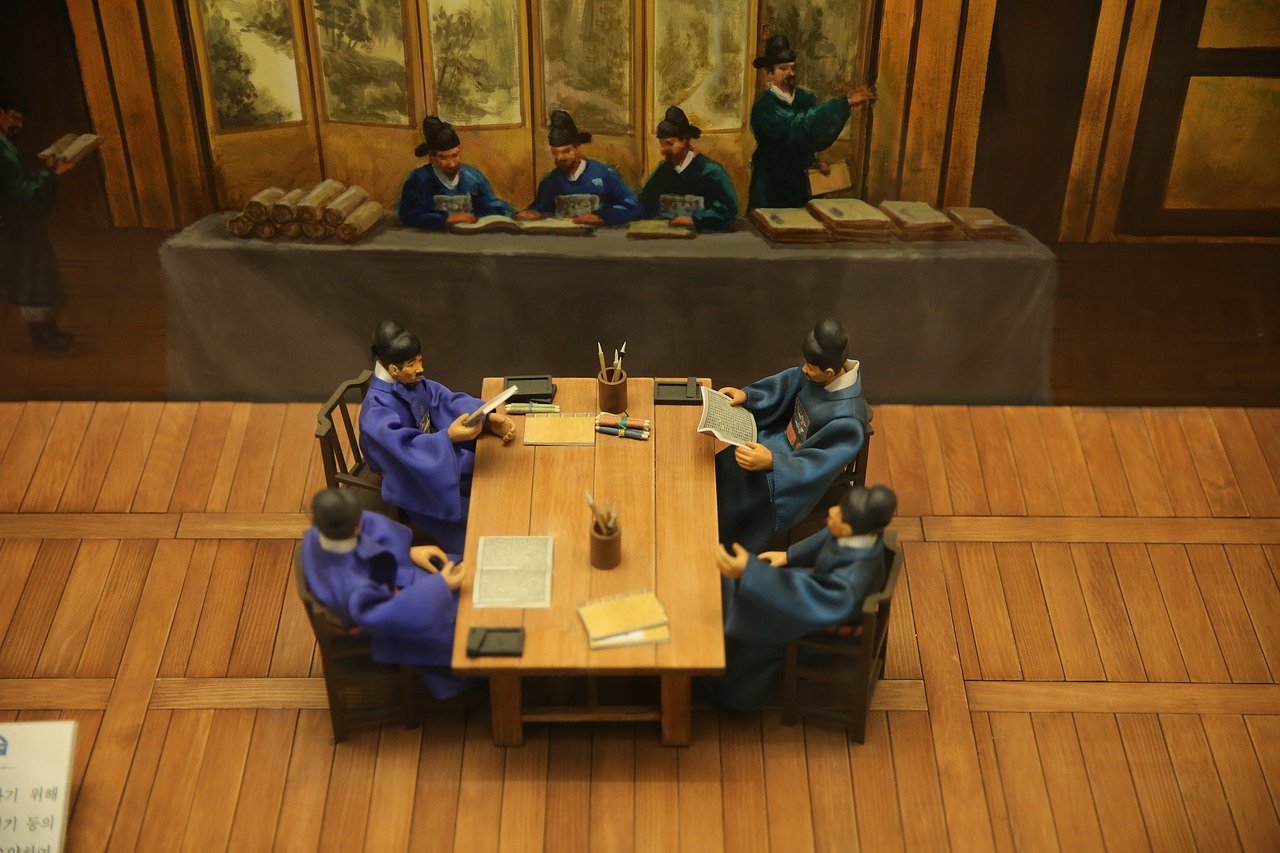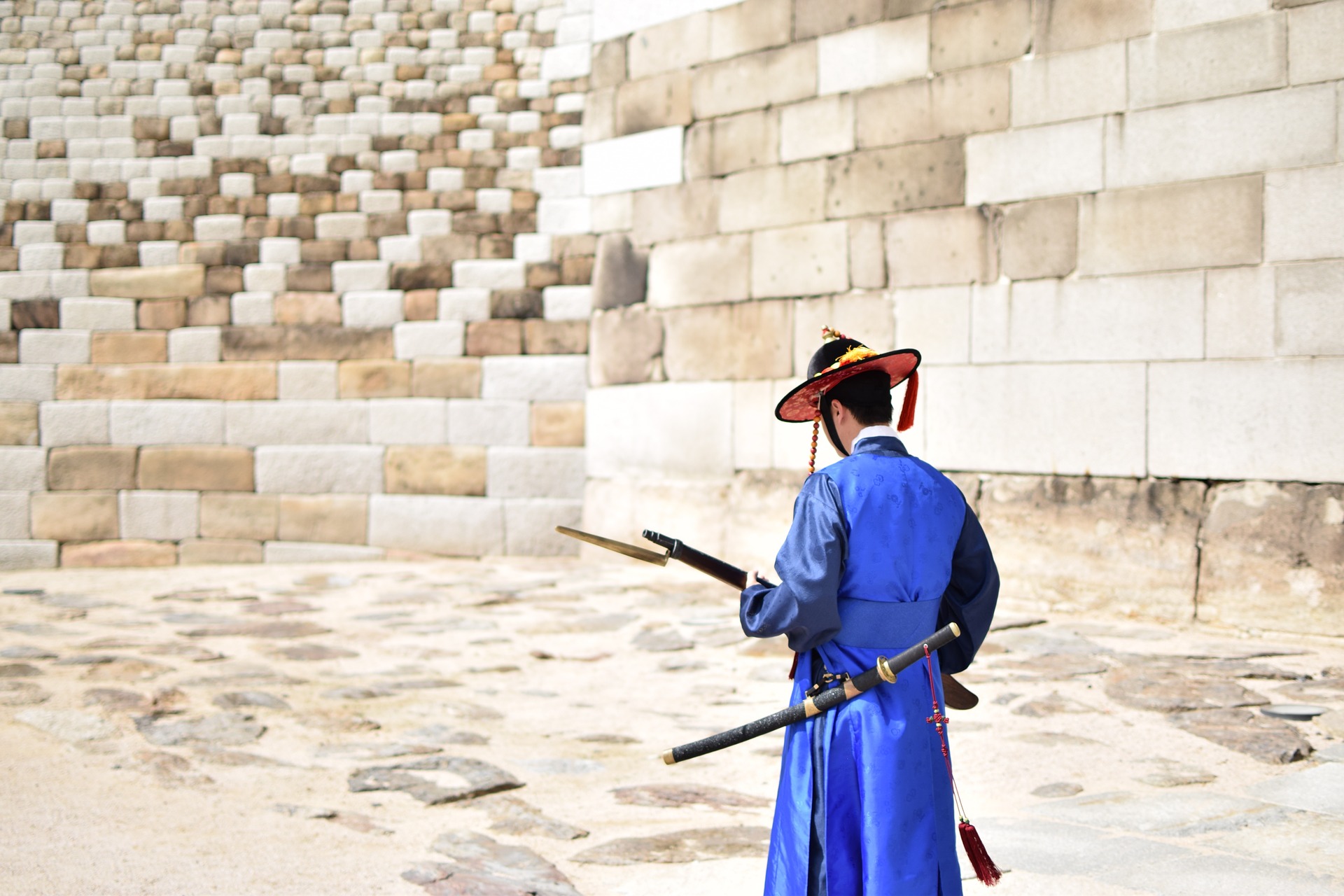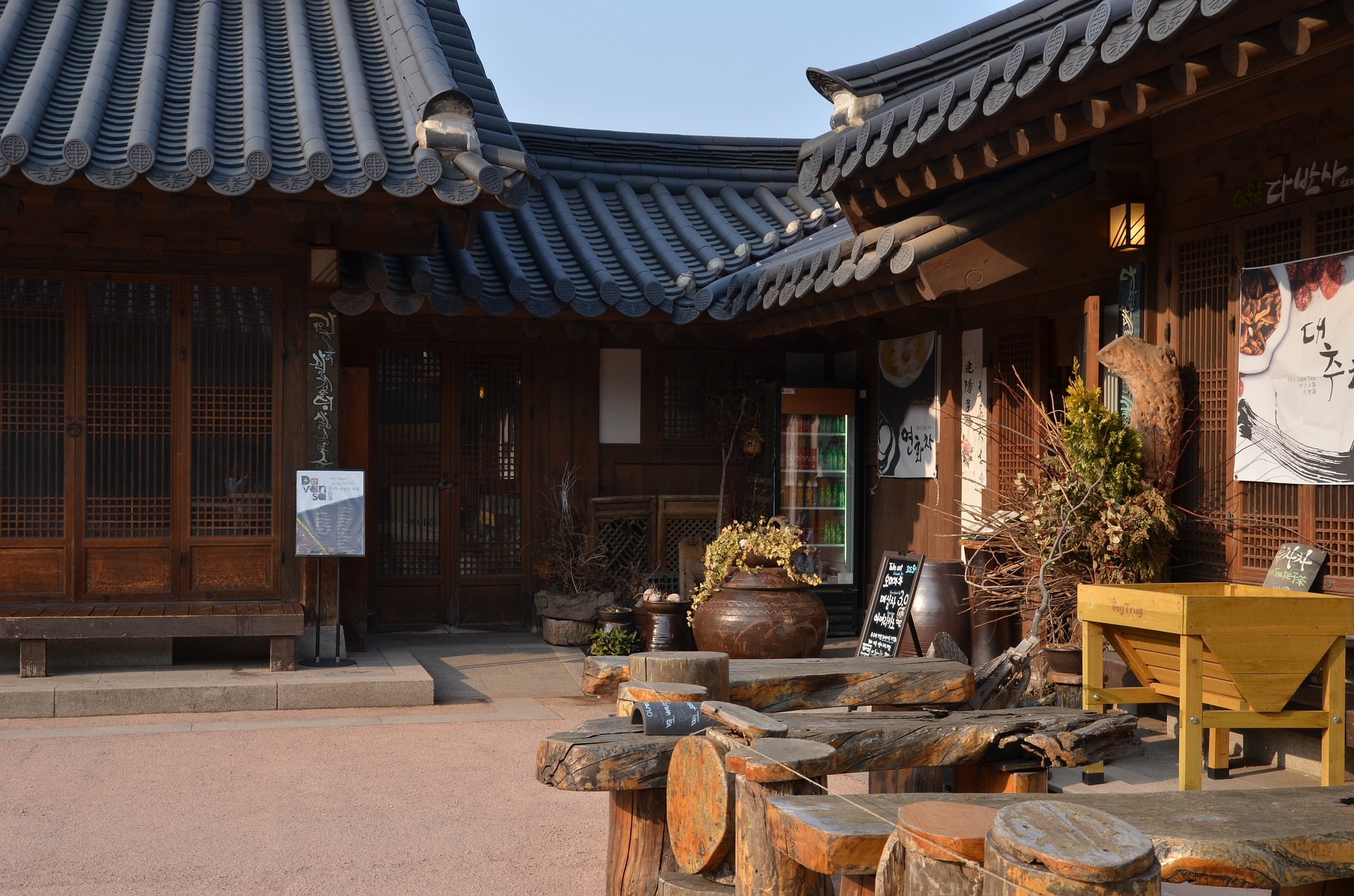Korean Archaic Words That Might Help You Enjoy Korean Dramas Posted by Flying Oyster on Apr 26, 2021 in Culture, Film & Theater, Korean Language, Vocabulary
I know K-Drama is popular all over the world, but I am often surprised by how many people, who enjoy Korean dramas, I run into. I often binge-watch some of them as well. I know, they can be addictive.
Among Korean dramas, I particularly like to watch 사극 (sah-geuk: historical drama). When I was younger, I preferred another genre, but I appreciate more the good old things as I get older.
Have you perhaps avoided watching them because of the difficult vocabulary in the shows? I understand if you do. While I watch 사극 dramas or movies, I sometimes face a few unusual words and phrases in 대사 (dae-sah: lines, dialogue). Much of the vocabulary in the shows are 고어 (goh-eh: archaic words) that are not used today.
Over time, I have been collecting 고어 from 사극 films. Today, I am going to share some common 고어 to help you understand 사극 better. Please note that most 사극 films I watched were in 조선시대 (joh-sun-si-dae: the Joseon dynasty).
Here is a list of basic vocabulary you want to know.
In most 사극 dramas, two opposite government parties would generate political conflicts. Below are the most common vocabularies to understand the parliamentary background of the shows.
- 조정 (joh-jeong: Royal Court)
- 전하 (jeon-hah: your Highness)
- 의정 (eui-jeong: parliamentary government)
- 소인 (soh-in: I, me a pronoun)
- 대감 (dae-gahm: His excellency, your excellency)
- 대감마님 (dae-gahm-mah-nim: My Lord)
- 양반 (yang-bahn: a nobleman)
- 신하 (sin-ha: a vassal)
- 사대주의 (sah-dae-joo-eui: cultural toadyism, flunkyism)
- 법도 (bup-doh: custom)
- 벼슬 (byoe-sul: a government position)
- 관직 (gwan-jik: public office, public position)
One of the reasons that I like to watch 사극 films is that they show extravagant actions, such as martial arts. I am always in awe of the workmanship of stuntmen.
- 검 (gum: a knife)
- 총칼 (chong-kahl: guns and swords)
- 무술 (moo-sul: martial arts)
- 무인 (mooh-in: a military man)
- 검객 (gum-gaek: swordman)
- 검술 (gum-sool: swordsmanship)
- 무관 (moo-gwan: a military officer)
- 포박 (poh-bahk: tie up, bind)
- 포로 (poh-roh: a prisoner)
- 투항 (too-hang: to surrender)
- 주막 (joo-mak: a tavern, an inn)
- 주모 (joo-moh: a barmaid)
- 사내 (sah-nae: a man)
- 처자 (cheo-jah: a virgin)
- 괄시 (gwal-si: contempt, scorn)
- 엽전 (yeop-jeon: a brass coin with a square hole in the middle)
- 약조하다(yak-joh-hah-dah: to promise)
- 사죄하다 (sah-jea-hah-dah: to apologize)
- 젖동냥 (jut-dong-nyang: to beg breast milk; single fathers usually begged neighbors’ breast milk for his infant babies.)
- 병수발 (byung-soo-bahl: to take care of a patient)
- 낙향 (nak-hyang: to retire to the countryside;낙향 was a sort of punishment to a government post)
- 수양딸 (soo-yang-ddal: a foster daughter)
- 여식 (yeo-sik: one’s daughter)
- 백성 (baek-seong: the people)
- 노예 (noh-yea: a slave)
- 정승 (jeong-seung: minister)
What did you think about these terms? Are they overwhelming you or encouraging you to watch some of 사극 dramas you have been wanting to watch? I believe that watching 사극 can be a good tool to learn Korean culture and language at the same time.

Build vocabulary, practice pronunciation, and more with Transparent Language Online. Available anytime, anywhere, on any device.








